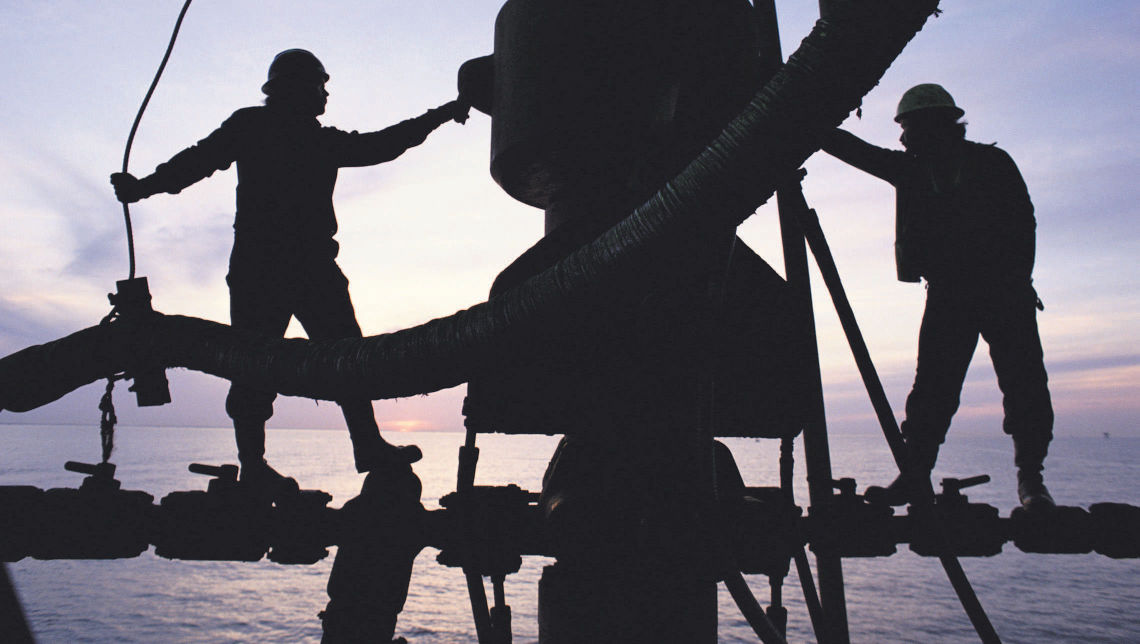
Galliano man ‘never met a stranger’ in 68 years of life
April 26, 2016
Shooting victim arrested on drug charges
April 26, 2016The sword of federal regulation hanging over the oil and gas industry’s head has finally come down.
The U.S. Department of the Interior’s Bureau of Safety and Environmental Enforcement announced that it has finalized its well-control rule, a regulation meant to improve safety in offshore oil exploration in the wake of the 2010 Deepwater Horizon oil spill. As the rule has developed, industry leaders have fretted about its possible economic impact on an already sluggish energy sector.
The rule instills more stringent regulations on offshore exploration, requiring additional BSEE third-party inspections, maintenance and repair of blowout preventers (BOPs), devices meant to seal a well when an explosion occurs. While the inspections to the BOPs is one thing, the most contentious portion of the new rule concerns the new double-shear requirement for those preventers. All deepwater BOPs are now mandated to have double-shear rams and updated technology to ensure improved shearing.
Cyn Sarthou, executive director of the Gulf Restoration Network, called the enhanced safety rules a step in the right direction in the wake of the Deep-water Horizon disaster.
“I know that some people don’t think they went far enough. But we felt it’s a step in the right direction. For us, it was really important that the federal government keep their promise to us to increase safeguards and offshore environments,” she said.
Oil and gas stakeholders and Louisiana politicians have said the new requirements would do mountains of harm to the parish. U.S. Rep. Garret Graves released a statement lambasting the finalized rule, calling it a “product of novices.”
“This is why it is dangerous to appoint bureaucrats that have never spent a minute working in the real world in charge of programs like this,” Graves said. “We all support the safety of our workers and the environment, but this is no more than a thinly-veiled attempt by the Obama Administration to kill our domestic energy industry. The sad irony is that the technical errors in this regulation will likely put our offshore workers at greater risk.”
U.S. Sen. David Vitter testified against the rule in September before the House Natural Resources Committee, saying it would threaten small businesses and, thus, the local economy. Vitter introduced an amendment into the Energy Policy Modernization Act, which the Senate approved last Wednesday, that would require the BSEE to work with the Small Business Administration’s Office of Advocacy to examine how the rule will impact small businesses.
Houma’s Lori LeBlanc is the head of the Gulf Economic Survival Team, an industry advocacy group. She said in a statement released by the GEST the rules were rushed through without allowing ample dialogue with industry experts. According to LeBlanc, the rule could result in companies shifting investment away from the Gulf to other parts of the world.
“We are concerned that [the DOI]’s decision to go forward with this rule will lead to stranded assets in the
Gulf, harming U.S. energy security while dealing a potentially devastating blow to Gulf communities stung by the industry downturn,” she said.
The GEST and Back to Work Coalition commissioned Wood Mackenzie, an energy, metals and mining research group, to study the well rule’s economic impact. Released in late February, the pro-industry study presents a bleak picture for Gulf production in regards to the rule’s implementation. The study, using an $80 barrel of oil as a benchmark, predicts the well-control rule could result in the loss of 105,000-190,000 jobs in the Gulf Coast region by 2030, including 20,000-35,000 in Louisiana alone.
The study also foresees a cumulative reduction in GDP between $260-$390 billion for Texas, Louisiana Mississippi and Alabama through 2030. Based on 2015 GDP figures from the U.S. Department of Commerce for those four Gulf states, and allowing for a 2 percent annual growth rate, that $390 billion would be about 1 percent of the $39 trillion of total GDP those four states would create through 2030.
However, as with the job figures, the pain would be felt more acutely along coastal communities such as Terrebonne and Lafourche parishes.
Terrebonne Parish President Gordon Dove, wary of the new rule’s effects on the parish’s economy, said industry officials have worked to self-regulate since the Deepwater Horizon disaster. According to Dove, the incentive to not face the same penalties as BP did has pushed the industry to new levels of safety. He sees the well-control rule as an overcorrection, particularly with the industry struggling because of low oil prices.
“With all the new regulations that have already been put out, they have covered themselves with safety as much as they can. They don’t want to spill oil, because they can’t afford to clean it up. I mean, it’s expensive. When you over-regulate an industry, you put an industry out of business,” Dove said.
According to Sarthou, self-regulation is vulnerable to market forces, and companies in leaner times such as today could cut costs that could reduce safety. She said that having a minimum standard the industry must follow inoculates oil and gas workers and the Gulf from market downturns.
“Rules and regulations ensure that no matter what the economic market is that you’re getting a minimum standard of safety and protection that is enforceable. And if you don’t have those standards, then whatever is going on in the industry in terms of economics can drive whatever level of safety you have,” Sarthou said. “[A blowout] could still happen, but at least it’s probably, I think, a lesser chance if you have some minimum regulation that they know they can enforce against you.”
“When you over-regulate an industry, you put an industry out of business.”
Terrebonne Parish President Gordon Dove
The well-control rule is another challenge that the oil and gas industry has had to face in the past few years. Industry leaders said they’re worried about the rule’s ramifications.









